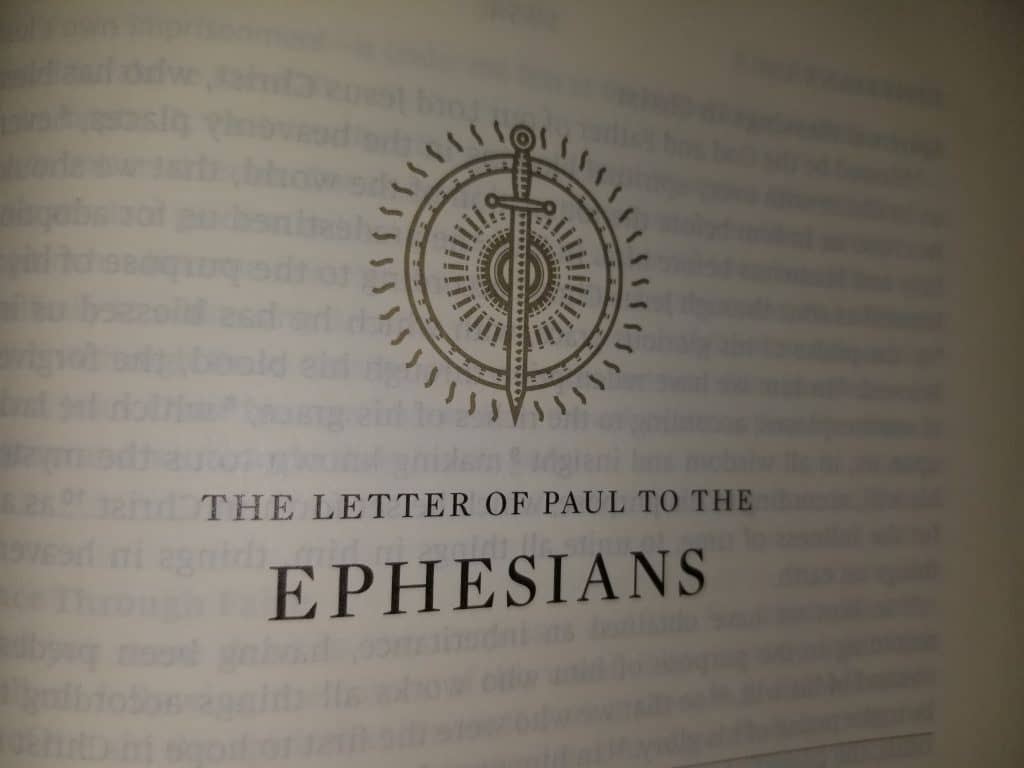⏱️ Estimated Reading Time: 8 min read
Ephesians 4:28, ESV, “Let the thief no longer steal, but rather let him labor, doing honest work with his own hands, so that he may have something to share with anyone in need.”
One of the great misconceptions about humanity is the belief that all people are basically good. Most people see that they have a few bad habits that need to change, but can manage on their own. The culture at large would agree that no one is perfect but deniesthe biblical teaching of total depravity, the belief that sin affects every aspect of humanity. Scripture is clear on the fact that all people are completely incapable of dealing with the biggest issue in their lives, namely sin. For this reason, in order to deal with sin, we are called to repent and trust in the work of Christ. This means that we are to enter a life of surrender to God’s will and walk with Him in holiness as a new creation. The Bible, especially in the New Testament, calls the believer to put away the old self and put on the new self. In his letter to the church in Ephesus, the Apostle Paul exhorts them to put on the new self in their speech, relationships, and conduct.
In the verse at hand, Paul addresses the topic of Christian conduct especially the sin of stealing. It is easy for modern readers of this verse to self-righteously check this box as one that does not apply to them. We don’t steal, right? We work hard for our money and have earned everything that we have. However, upon closer inspection of the text, Paul’s exhortation is not primarily about what not to do, but what type of conduct is expected of the believer. Why is it important for the thief to no longer steal? The reason it is important not to steal has more to do with the right motive that correct behavior. The purpose of the Christian community is to be others focused and no longer self-focused. Paul’s stated reason for not stealing is so that one has the freedom to make an honest living and “share with anyone in need.” Everything Christians do must exist for and bring glory to God and be for the good of others.
Many times we think of work as something that we have to do in order to make a living so that we can do what we want to do. However, in the Bible, we see that work is a gift and a blessing from the Lord. Work was given to Adam and Eve before the Fall as a way to have dominion over the earth. After the Fall, the idea of work has been broken. We tend to either have an aversion to work or idolize it.
Work as a Gift and Blessing: Defending Against Laziness
In this passage, we see the biblical theology of work. We learn from this passage that hard work helps to defend against laziness. Paul instructs the Ephesians believers that they are to “labor, doing honest work with [their] own hands.” This broad statement encompasses all types of work, so long as the work is productive to society and God-honoring. The Lord has gifted each of us with talents and abilities that can be useful in all types of work. We shouldn’t sit around and wonder what He has called us to do. Rather we should recognize how He has gifted us and seek “honest work” in that field. Making an honest living is part of fulfilling our calling to having dominion over the earth.
In his book, Every Good Endeavor Timothy Keller reminds us that “work is our design and our dignity; it is also a way to serve God through creativity, particularly in the creation of culture” (Keller, 43). Work is a way that continues the work of cultivating the good creation that God has given us. Laziness is a distortion of the good gifts that God has given. It seeks to reap the benefits of creation without knowing the Creator. God does not need human beings to help Him in His work of sustaining the world, but He chooses to do so to know His creation more intimately. Martin Luther puts it this way, “God could easily give you grain and fruit without your plowing and planting, but he does not want to do so” (Pelikan, Luther’s Works, vol 14).
I relate this to the time my dad wanted to repaint the kitchen. He first had to take down the old wallpaper and patch any holes before he primed and painted. It was a several day process. I was a teenager and asked if I could help out, to which he obliged. He could have easily said no, and probably get the work done faster. I had never taken down wallpaper before, and I thought I was doing the job well when dad realized that I was not only taking down the wallpaper but the first layer of sheetrock as well. We had to putty an entire section of the wall before we could paint, which took more time than indented. In the end, the kitchen got painted, and I learned how to take down wallpaper. More importantly, however, I spent some quality time with my dad. To this day I still look at that portion of wall and smile. In the same way, the Lord wants us to do “honest work” so that we know Him better and trust His provision in our lives.
Work as a Blessing to Others: Defending Against Idolatry
We also see from this passage that we are not only to defend against laziness but are to defend against idolizing work. Work is a good thing, but it is not ultimate. When we make too much of work and put it in the status of ultimate in our lives, it becomes an idol.
The best way to defend against idolizing work is to see work as a blessing to others for the glory of God. In this passage, Paul reminds believers to do honest work to have the opportunity to “share with anyone in need.” We work not merely to provide for ourselves and our families, but for the common good. This is not only accomplished when giving away a portion of our income but when we have the good of others as our focus for work. Timothy Keller says, “if the purpose of work is to serve and exalt something beyond ourselves, then we actually have a better reason to deploy our talent, ambition, and entrepreneurial vigor – and we are more likely to be successful in the long run, even by the world’s standards” (Every Good Endeavor, 58). By not viewing work as ultimate, it frees us to work the glory of God and the good of others which was the original intent of work before the Fall.
Work is a common grace that the Lord uses to sustain the world. The jobs that we perform do not merely help our company or organization make a profit, but are useful for the common good of society. We must remember that the Lord uses other people’s talents and abilities to bless us, and we, in turn, must bless others in kind.
Ultimately, our theology of work must point us to Jesus who has completed the work of our salvation. We cannot work hard enough to earn His grace. He has finished the work by His death and resurrection. Yet, as we do our work for His glory, we must trust that He is working in us and through us by His strength.
Paul exhorted the Ephesians church in this way earlier in the letter when he said, “For by grace you have been saved through faith. And this is not your own doing; it is the gift of God, not a result of works, so that no one may boast. For we are his workmanship, created in Christ Jesus for good works, which God prepared beforehand, that we should walk in them” (Ephesians 2:8-10, ESV). When done rightly, our work will lead us to worship the Lord as we remember all that He has done for us and all that He has called us to do. We must not worship our work but worship through our work.
Conclusion
Work is a blessing and gift from the Lord that helps us defend against laziness, and through our work, the Lord blesses others which keeps work in perspective that helps us defend against idolatry. We are to trust the Lord’s provision in our lives and not take matters into our own hands by stealing, cheating, and taking advantage of others. We are to work hard to provide for ourselves and our families. However, we are also called to use the gifts and talents we have been given for the common good. As Jesus has been generous to us, so we must be generous with what He has given us in our time, talent, and treasure. Brothers and sisters in Christ, “whatever you do, work heartily, as for the Lord and not for men, knowing that from the Lord you will receive the inheritance as your reward. You are serving the Lord Christ” (Colossians 3:23-24, ESV).




